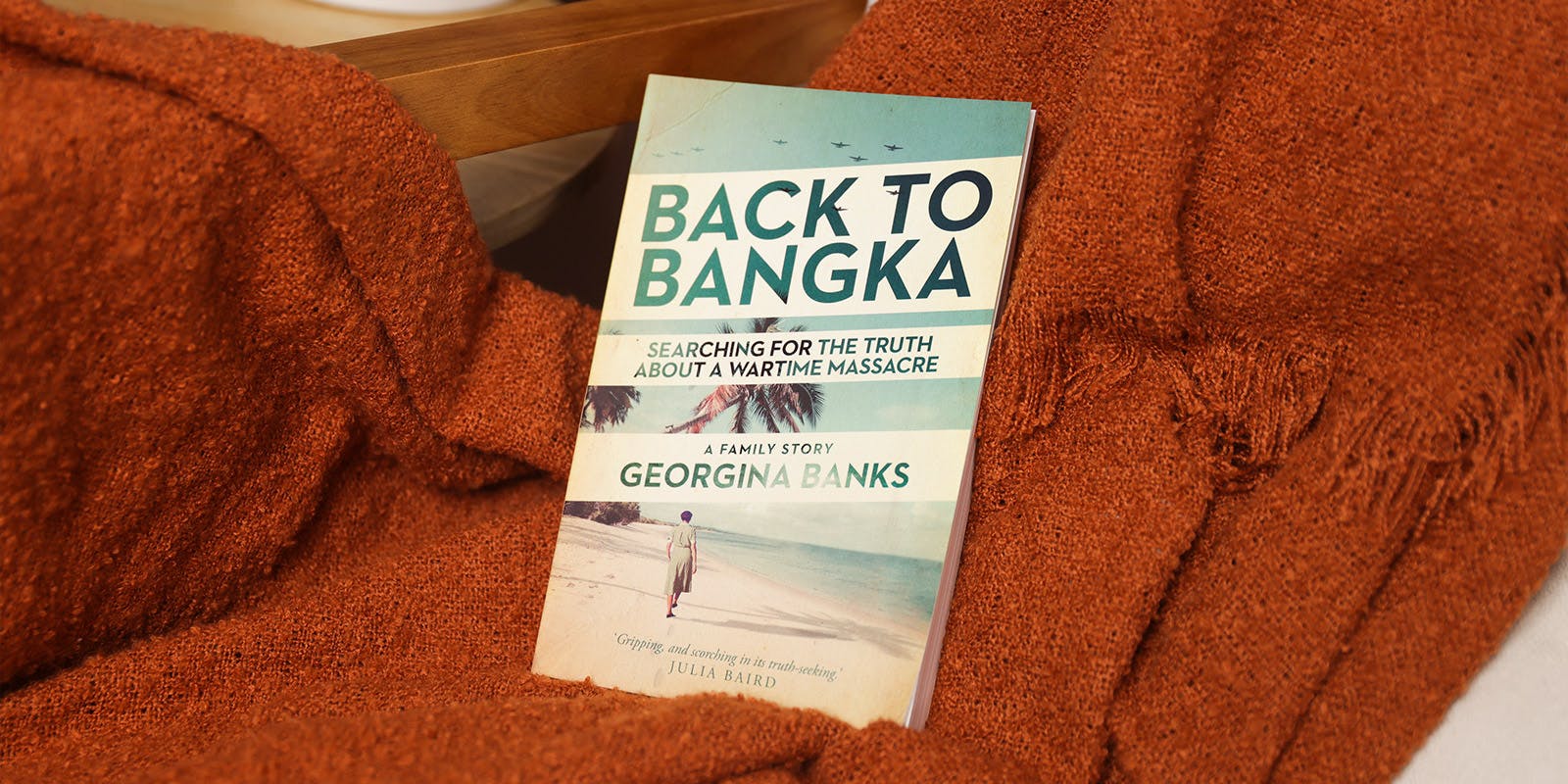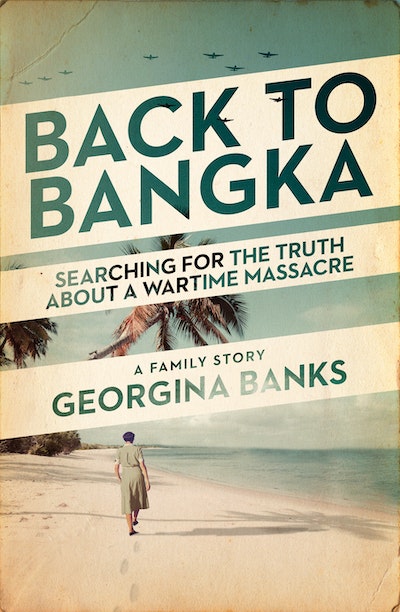A gripping wartime memoir with a twist, to read with your book club.
Back to Bangka is a story by author & storyteller Georgina Banks. After being invited to a memorial service for her great-aunt 'Bud,' she subsequently searches for the truth about the moment when her great-aunt was killed during a mass WWII attack. A moving and intergenerational family story, it explores many themes, such women in wartime, censorship in history and dealing with grief. It also employs an interesting narrative layout: part-dramatised account, part-memoir. This and many more discussion points such as those below, make it a fantastic read for your book club to talk about.
Discussion points and questions
-
The tragic story of the Bangka Island massacre was well known at the time but has since largely been forgotten. Were you familiar with the story? Why do you think it was relegated to obscurity?
-
What were your thoughts on Bud as a character? Could you relate to her?
-
‘Back to Bangka’ is part dramatised account, part memoir, set in both 1942 and the 2020’s. How did you find these two narratives worked alongside each other? Why do you think Banks structured it this way?
-
The author explores the ways in which this story has been censored and made more palatable. What are the possible reasons for authorities at the time erasing the full truth and for the ongoing suppression of the story? How do you think this would be handled today?
-
One of the key questions in Back to Bangka is: is it more merciful to speak up or stay silent? Particularly when some of the second generation relatives are still alive and there are different sensitivities around this - including disbelief. How does Banks grapple with this?
-
The author’s father expresses the sentiment ‘I don’t want to open old wounds.’ Do you think there is wisdom in this? Have you experienced this in relation to your own family?
-
The deeper into the story she gets the more Banks start to experience inter-generational grief. She was surprised by this, were you? How are the concepts of inter-generational grief, and healing explored in Back to Bangka?
-
The nurses show an incredible dedication and sense of service to both their patients and country. Do you think we would see this same commitment today? What has been your own personal experience?
-
Should history be censored? If these women’s full experience was silenced then what does that mean for current victims of violence and sexual crimes in war? What are other examples of censorship in war that you are familiar with?
-
At this point in history, what are your thoughts on what constitutes justice for Bud and these women?
-
A statue of Vivian Bullwinkel has just been unveiled at the Australian War Memorial (with the other nurses featured at the base of the statue). What is the contemporary relevance of these women and this story for current and future generations?













